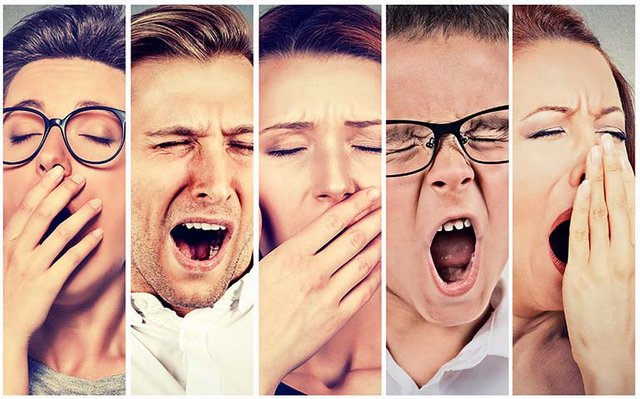Why are yawning contagious?
Why are yawning contagious?
The key is in the activation of the motor cortex of the brain, a finding that allows progress in the treatment of neuropsychiatric diseases.

Even if we are not tired, if we see someone yawning, we do it too. A very common reaction that we have all experienced. But why does this happen? The key lies in the activation of a very specific region of the brain, according to research from the University of Nottingham.
The study suggests that the propensity for contagious involuntary yawning originates in the primary motor cortex of the brain, the area responsible for the execution of movement through neuronal impulses. The results shed light on the neural basis of this echophenomenon (automatic repetition of the words or actions of others), unknown until now.
The study involved 36 adult volunteers who were taught to contain the contagion while watching video clips showing people yawning. Subsequently, all their yawns were counted, including the repressed ones. To test the relationship between the neural base of yawning and motor excitability, the group of researchers used transcranial magnetic stimulation (TMS) techniques, demonstrating that electric stimulation can also encourage yawning.
Thanks to the TMS they also proved that being more or less prone to contagious yawning depends on the cortical excitability and physiological inhibition of the primary motor cortex of each person, for which the need to yawn is different in each one of us. However, our ability to resist contagion is limited and even the attempt to suppress it increases the need to yawn. As much as we try, our predisposition to yawning will not change.
The finding, published in the journal Current Biology, will allow researchers to better understand the causes of diseases related to an increase in cortical excitability and / or a decrease in physiological inhibition, where patients can not stop the most common echophenomena: ecoalia, involuntary imitation of words, and echopraxia, automatic imitation of actions.
"We believe that these findings can serve to better understand a wide range of clinical pathologies such as epilepsy, dementia, autism and Tourette syndrome," said Stephen Jackson, a professor of Cognitive Neuroscience at the University of Nottingham and director of the study.
Looking for personalized treatments
"This research has shown that the impulse increases when you try to stop using electrical stimulation could increase motor excitability and in doing so, increased the tendency to get the yawn, so if in patients with Tourette we could reduce the excitability, we would reduce tics, and that's what we're working on, "explains Georgina Jackson, a professor of Cognitive Neuropsychology at the Mental Health Institute in Nottingham.
The study, part of the new Biomedical Research Center (BRC) of the city, explores new personalized treatments through TMS techniques, without the need for drugs. "If we can understand how alterations in the excitability of the primary motor cortex cause neural disorders, we would potentially be able to reverse them," says Professor Stephen Jackson.


